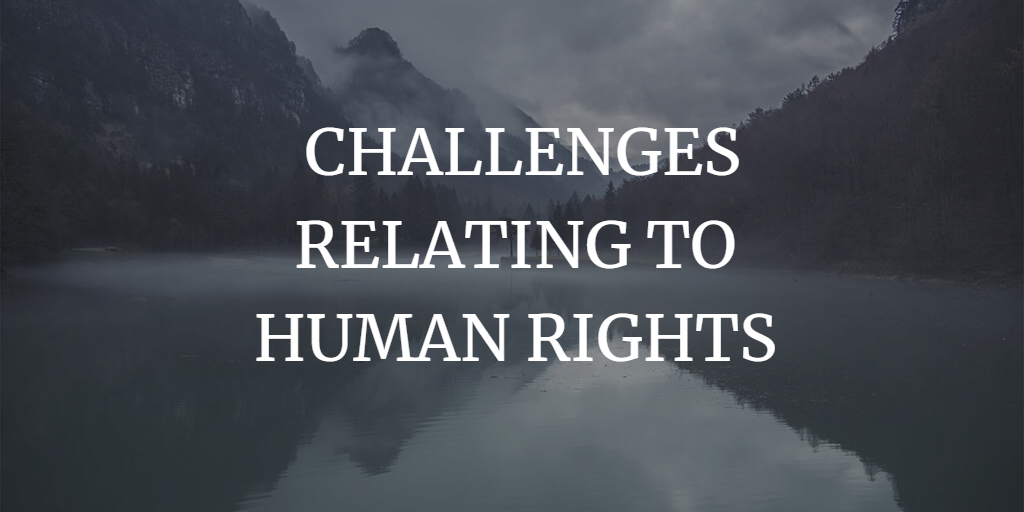EMERGING CHALLENGES RELATING TO HUMAN RIGHTS IN INDIA!!!

Human rights are fundamental rights to which every person is entitled, regardless of their nationality, race, religion, or any other status. In recent years, India has faced numerous challenges relating to human rights. In this blog post, we will discuss these emerging challenges and consider possible solutions for addressing them.
Table of Contents
Introduction to Human Rights in India
Major Emerging Challenges
Gender Discrimination
Caste-based Discrimination
Religious Discrimination
Police Brutality and Judicial Reforms
Internet Shutdowns and Freedom of Expression
Potential Solutions
Conclusion
1. Introduction to Human Rights in India
The Constitution of India guarantees several fundamental rights to its citizens, including the right to equality, the right to freedom of speech and expression, the right to protection from exploitation, and the right to religious freedom. While the country has made significant progress in promoting and protecting human rights, various emerging challenges continue to affect different sections of society.
2. Major Emerging Challenges
2.1. Gender Discrimination
Gender discrimination remains a persistent issue in India, with women facing challenges in areas such as education, employment, and access to healthcare. Female infanticide, dowry-related crimes, and gender-based violence continue to be pressing concerns.
2.2. Caste-based Discrimination
Despite constitutional provisions and legislative measures, caste-based discrimination continues to plague Indian society. Marginalized communities such as Dalits and Adivasis face social exclusion, economic disparity, and limited access to education and other resources.
2.3. Religious Discrimination
Religious discrimination has grown in recent years, with instances of religious intolerance and communal violence. Minority religious groups have faced challenges in exercising their rights to freely practice their religion and maintain their cultural identity.
2.4. Police Brutality and Judicial Reforms
Excessive use of force by law enforcement agencies and instances of custodial torture have raised concerns about the violation of human rights. Additionally, delayed justice and overcrowded prisons highlight the need for judicial reforms to uphold the rights of those accused and detained.
2.5. Internet Shutdowns and Freedom of Expression
Frequent internet shutdowns, especially in conflict-prone areas, have affected the right to freedom of expression and access to information. The increasing use of sedition and defamation laws to suppress dissent and criticism also raises human rights concerns.
3. Potential Solutions
Addressing these emerging challenges to human rights in India requires a multi-faceted approach:
Strengthening the implementation of existing laws and policies to address discrimination and violence
Increasing awareness and sensitization programs to promote tolerance and inclusivity in society
Enhancing access to education, healthcare, and other essential services for marginalized communities
Empowering women through education, skill development, and equal opportunities in the workforce
Implementing police and judicial reforms to ensure transparency, accountability, and timely justice
Encouraging dialogue and open discussions on sensitive issues to promote understanding and cooperation between different communities
Protecting freedom of expression by reviewing and amending restrictive laws, and ensuring responsible use of technology for the dissemination of information
4. Conclusion
Emerging challenges relating to human rights in India need to be addressed with urgency and determination. By working together, the government, civil society organizations, and individuals can create an inclusive and just society that respects and upholds the rights of all its citizens. Recognizing the importance of human rights and taking active steps to protect them is essential for India's progress and development in the years to come.


